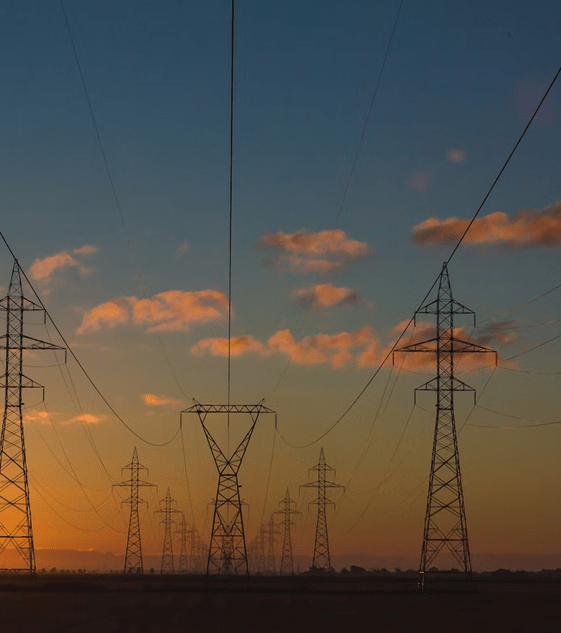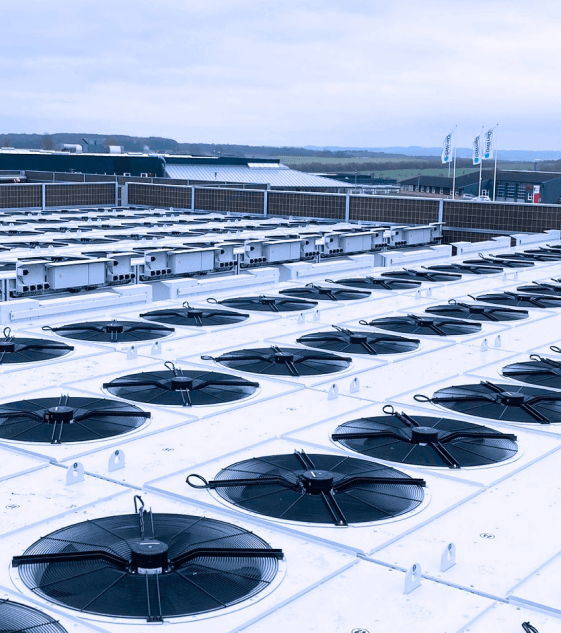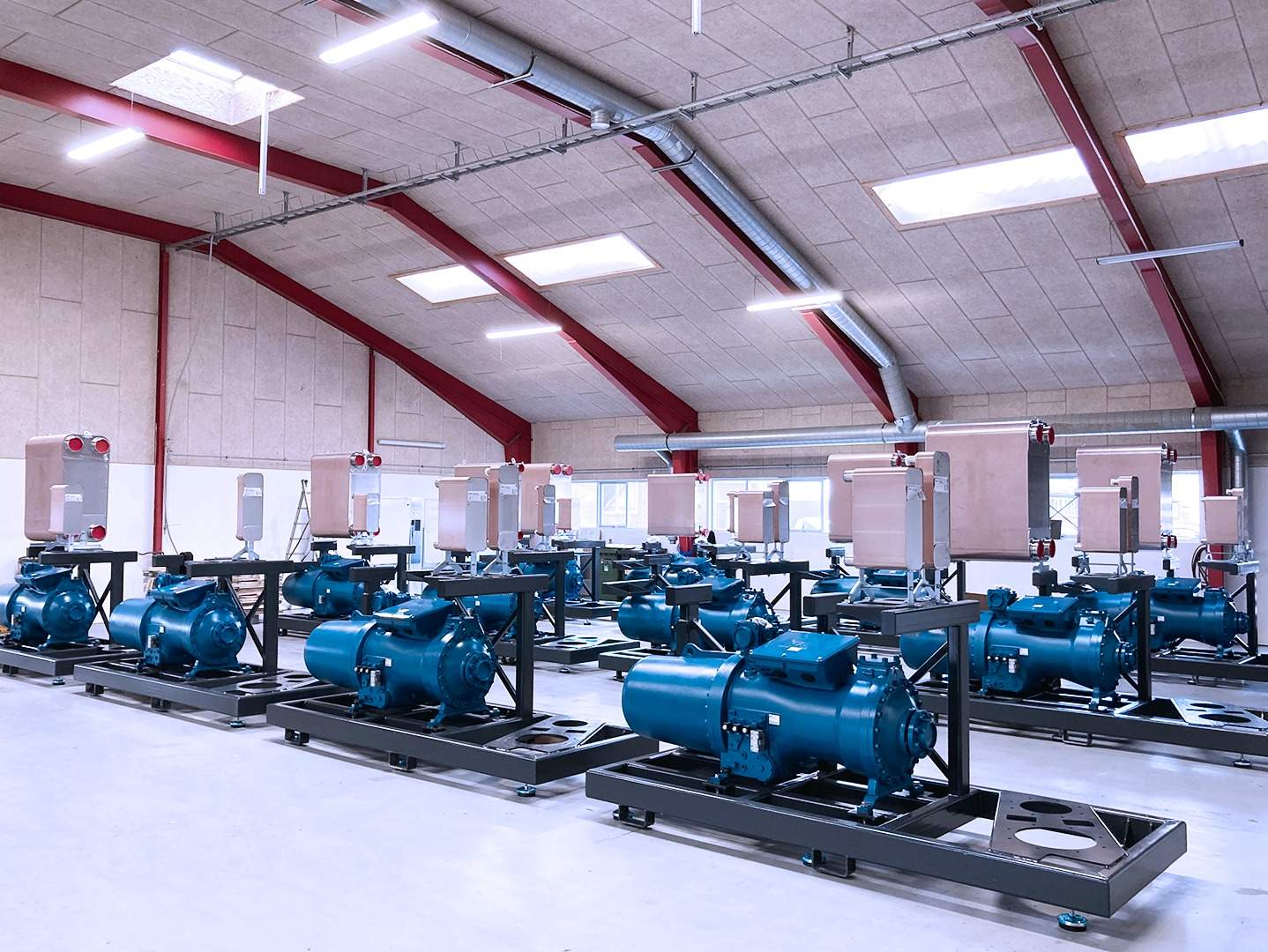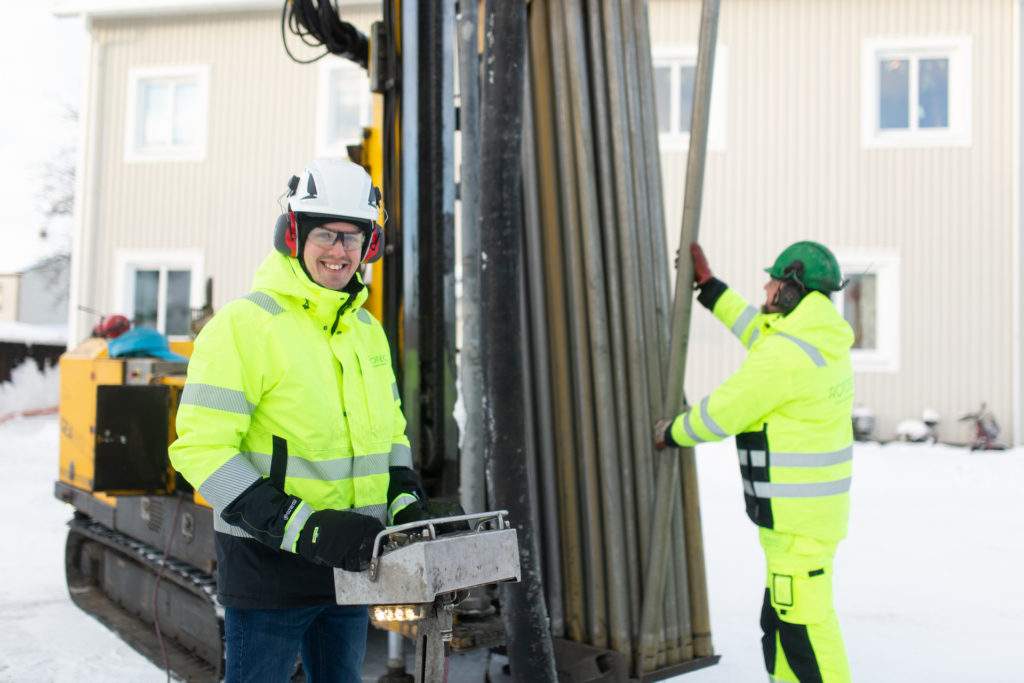Recent changes to support schemes in many EU countries have affected consumer and manufacturer confidence. To ensure that heat pumps have a clear and definite future long-term supportive policies are crucial. The EU has some upcoming plans and proposals which can show the way.
Heat pumps are pivotal for our energy independence and net-zero future. Ensuring consistent, streamlined and ambitious long-term policies on heat pumps is vital for attracting both demand for them and investments in the EU’s manufacturing and workforce.
Heat pump manufacturers have planned €7 billion of investments in European factories, production, R&D and training from 2022-2025. But the most recent figures show sales have dropped in 2023 and in 2024 after ten years of growth.
Demand for heat pumps and these billions in investments could be at risk. Therefore, it is crucial to boost the heat pump market through a continued commitment to the technology, strong consistent and forward-looking policies and a market environment shaped towards making clean technologies the ones that are economically most attractive.
Launched after the 2024 EU Election by the Energy and Housing Commissioner, Dan Jørgensen, it’s expected to be published in early 2026, together with the EU Heating and Cooling Strategy.
The aim of the Commission is to boost electrification and the implementation of an energy system with clean electricity produced in Europe.
The action plan is accompanied by a roadmap towards ending Russian energy imports and the full implementation of the EU’s plan to reduce dependence on imported fossil fuels, REPowerEU.
EHPA strongly supports the publication of the plan, together with the industry coalition Electrification Alliance, and for the central role of heat pumps to be recognised.
Read our position.


The EU Heating and Cooling Strategy, expected in early 2026, together with the Electrification Action Plan, seeks to tackle one of Europe’s biggest energy challenges: heating and cooling make up half of the EU’s total energy use, yet 70% still depends on fossil fuels, mainly gas.
Being three to five times more efficient than fossil fuel boilers, heat pumps reduce energy demand, enable direct electrification, and utilise renewable and waste heat. The upcoming Heating and Cooling Strategy presents a key opportunity to recognise heat pumps in EU legislation as the ‘first-choice’ technology for decarbonising heating and cooling.
EHPA strongly supports this initiative, as it provides a clear pathway to accelerate the deployment of heat pumps and ensure a faster, more cost-effective transition to clean heating and cooling for households, businesses, and industry.
Read our position.

In July 2025, the European Commission proposed an amendment to the European Climate Law to set an EU climate target for 2040.
The Commission’s work programme indicates that this target requires EU countries to collectively cut their net emissions by 90% from 1990 levels, building on the existing pledge to reduce net emissions by 55% by 2030.
EHPA believes that ambitious and binding post-2030 EU energy efficiency and renewable energy targets are key to providing policy predictability for local and regional governments, businesses, and investors and to reaching climate neutrality while enhancing energy security.
The Heat Pump Accelerator Platform is an initiative from the European Commission which will bring organisations together – from government authorities and energy agencies, to civil society organisations, utilities, and institutions concerned with education, research and financing.
The platform will allow members to share ideas, experiences, and best practices to promote sustainable heating solutions. It will track policies that impact heat pump deployment, align strategies on energy, industry, research, and education so they all support heat pump deployment, and tackle barriers through the expertise of platform members.
The initiative is co-organised by the European Heat Pump Association, the Belgian research organisation VITO, and the German research institute Fraunhofer ISE for the European Commission

Fit for 55 is the European Union’s plan to cut greenhouse gas emissions by at least 55% by 2030 compared to 1990 levels. It is part of the EU’s commitment to fight climate change and become climate-neutral by 2050.
EHPA’s EU-funded projects like WaterWarmth, Meta build, Shift 2DC, RHC and REDI4HEAT support these objectives.
This plan includes a set of proposals to update existing laws and introduce new measures to align EU policies with these ambitious climate goals, including the following:
Energy Performance of Buildings Directive (EPBD)
The revised Energy Performance of Buildings Directive entered into force in all EU countries in May 2024 and helps increase the rate of renovation in the EU, particularly for the worst-performing buildings, which account for 40% of EU energy use. Key measures include phasing out fossil fuel boilers by 2040, achieving zero emissions for all new buildings by 2030, and all buildings by 2050. The directive also introduces minimum energy performance standards (MEPS), targeting the least efficient buildings first to ensure they are heat pump-ready.
Prioritising poorly insulated buildings will provide healthier, more comfortable homes for vulnerable households, while one-stop shops will offer consumers tailored solutions and quality installations. EHPA welcomes and supports the EPBD as an important step towards decarbonising buildings.
Renewable Energy Directive (RED)
The revised Renewable Energy Directive introduces sector-specific targets for accelerating the integration of renewable energy in key areas such as transport, industry and buildings, as well as district heating and cooling. Regarding buildings, the new rules establish an indicative target of a minimum 49% renewable energy share by 2030. Additionally, there will be gradual increases in the use of renewable energy for heating and cooling, with a yearly increase of 0.8% until 2026 and 1.1% from 2026 to 2030.
EHPA supports a 45% overall renewable energy target and increased targets for renewables in heating and cooling in buildings.
Energy Efficiency Directive (EED)
The revised Energy Efficiency Directive (EU/2023/1791) entered into force on 10 October 2023. The Directive introduces significant measures, including a mandate for data centres with a total rated energy input exceeding 1 MW to utilise waste heat or other recovery applications. It also highlights heat pumps as a key technology in assessing national heating and cooling potentials.
Annual energy savings for final energy consumption will gradually increase from 1.49% in 2024 to 1.9% in 2030. Notably, energy savings from policies promoting direct fossil fuel combustion are excluded, reinforcing the focus on clean energy solutions. EHPA welcomes the new, binding energy efficiency target as a vital step towards meeting the EU’s climate goals and reducing greenhouse gas emissions.

The national energy and climate plans (NECPs), introduced under the EU’s 2018 Governance Regulation, were part of the 2019 Clean Energy for All Europeans package. Member States were required to submit updated NECPs by 30 June 2024, incorporating the Commission’s recommendations.
While some drafts highlight the importance of heat pumps, others lack robust measures to boost their adoption. EHPA urges Member States to prioritise clean heating, set clear timelines to phase out fossil fuels, and make sustainable heating affordable and accessible for consumers.
EHPA’s work on the national implementation of EU directives on clean heating and cooling is further supported by the EU projects RHC and REDI4HEAT.
The Ecodesign Directive and Energy Labelling Regulation aim to improve energy efficiency, facilitate the free movement of energy-related products in the EU, and provide consumers with tools to choose efficient options. For the heat pump industry, Ecodesign sets strict manufacturer requirements, ensuring outdated technologies are excluded from the market and driving innovation. EHPA supports these standards, which align with EU energy efficiency targets under the 2022–2024 Ecodesign Working Plan.
The Energy Labelling Regulation complements Ecodesign by mandating labels that help consumers make informed choices, benefitting heat pump technologies in top energy classes. EHPA backs the proposed rescaling of labels to highlight best-performing products.
Additionally, the European Product Registry for Energy Labels (EPREL) established in 2019, allows consumers to compare energy efficiency and ensures product compliance. Since March 2022, the public trial version has enabled easy access to energy labels and product details. The Ecodesign for Sustainable Products Regulation (ESPR), effective from 2024, expands the 2009 directive by introducing stricter requirements for sustainability, circularity, and durability, advancing the EU’s circular economy goals.
EHPA’s work is also supported by the EU project Compliance Services for Ecodesign.

The revised F-gas Regulation (EU/2024/573) entered into force in March 2024. Fluorinated gases (F-gases), known for their significant global warming potential, are regulated by the EU’s F-Gas Regulation, which limits their availability and aims to reduce emissions. The Regulation mandates a phase-down of F-gases to one-fifth of 2014 levels by 2030, bans their use in equipment where safer alternatives are available, and requires proper servicing and recovery at the end of a product’s life. The heat pump sector has been working to adopt non-fluorinated alternatives wherever technically feasible.
The discussion on F-gas use has intersected with broader regulatory efforts, such as the proposal to restrict per- and polyfluoroalkyl substances (PFAS) under the EU’s REACH chemicals regulation. This proposal, submitted in 2023 by five European countries, includes over 10,000 substances, including some used in heat pump manufacturing. EHPA has actively engaged in the debate, emphasising that a narrow focus on refrigerants or specific components could unintentionally undermine EU climate goals. Flexibility in regulatory frameworks is essential to enable the industry to meet ambitious deployment targets and maintain momentum toward net-zero objectives.
EHPA’s work on refrigerants is also supported by the EU-funded project SKILLSAFE EU.
Have questions on a specific file or position? Click here to find the right policy colleague to assist you. For general inquiries, email policy@ehpa.org.
EHPA’s policy work on EU energy and climate targets is also supported by the EU-funded projects:
This publication provides feedback from the heat pump industry to the European Commission’s work on the forthc...
Artificial Intelligence is transforming not only our daily lives but also the way we plan, design, and use the...
Turning water into clean energy? That’s exactly what the WaterWarmth EU-funded project is doing in ten d...
After two tough years in terms of heat pump sales, there was a glimpse of stabilising numbers in the...
EHPA continued to be active in many relevant coalitions and campaigns: some long-term, and others coming toget...
People need to be able to afford to buy their heat pump in the first place – which is why EHPA updated its rep...